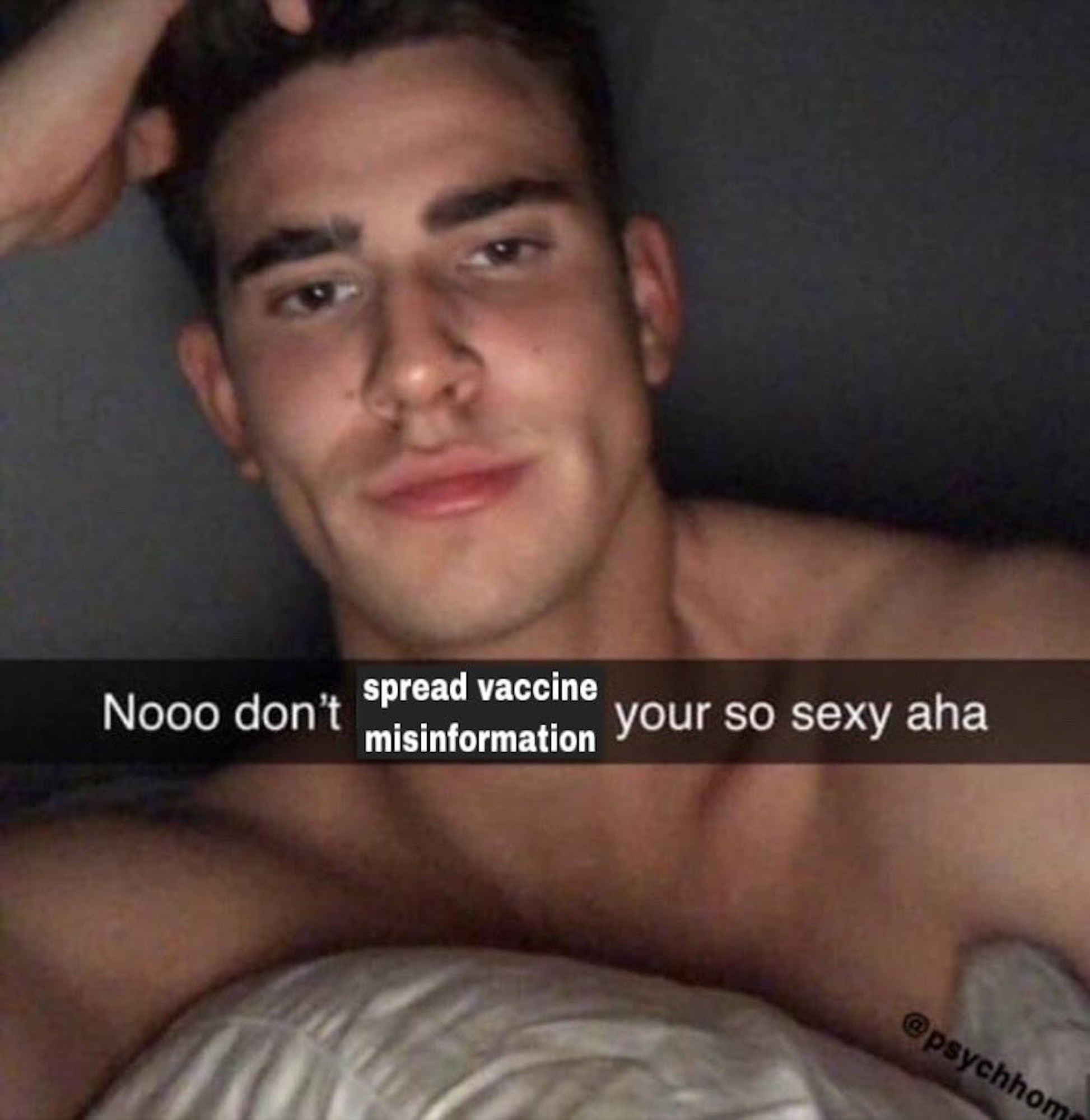According to the Office for National Statistics (ONS), as of the 18th of July, vaccine hesitancy among those aged 16 to 29 has fallen to 8%. This is definitely good news, but 8% still equates to hundreds of thousands of people. In the USA, polling by the Kaiser Family Foundation (via Bloomberg) suggests 34% of 18- to 29-year-olds said they wanted to wait before getting vaccinated, and another 15% responded that they did not plan to get the vaccine at all. These margins could be enough to jeopardise global herd immunity.
Given the last year, vaccine hesitancy is quite understandable. A study published by the London School of Economics in 2020 showed that Gen Z are “likely to have less faith in elections and their own governments for the rest of their lives” after coming of age during the COVID pandemic. Information on COVID safety from both the UK and US governments has been garbled, difficult to find and often contested by scientists and medical organisations. The facts on vaccine safety have suffered a similar fate, with misinformation rife over social media.
“I think you do have to let people decide, but I think we’ll probably end up finding that most people eventually decide to get the vaccine”, Dr. Parth Patel says. “In general, the arguments for getting [the vaccine] almost always outweigh the arguments against it.” Dr. Patel spent the first half of 2020 as a junior doctor in A&E, then moved to UCL to work on the national COVID study, Virus Watch, which focuses on how social inequalities and economic factors shape the ways in which COVID affects communities. His second job is at the think tank IPPR, which promotes research into and the education of the public on social, economic and political issues.
That’s why we asked him to respond to some common claims about the vaccine we’ve heard flitting about on social media. Dr. Parth recommends looking at print media, legacy digital media (like BBC News) and trusted friends and family to get the right kind of information, but before you do that – here’s what he thinks.
I’m young and healthy, so if I get COVID, I’ll be fine.
I agree – if you are young and healthy, then the chances of you becoming really unwell with a COVID infection are pretty low. However, there’s more to the virus than just ending up in the hospital or ending up dead. There’s the risk of developing long COVID, something we really don’t understand. We don’t know what it means [for your health], how common it is or how severe it could be. So I think that’s something that should be thought about when you weigh up whether you should get a vaccine or not and what the benefits are versus the risks.
Then the second thing is that vaccines are about more than just individuals. By getting it, you help everyone around you – your friends, your neighbours, your family, your town. The most effective thing you could probably do to help get us out of this pandemic is get the vaccine.
There might be life-threatening side effects.
I can certainly see why lots of people are worried about this. It’s a new type of medication; it’s a vaccine. Particular types of information are being peddled around, and it’s really hard to be able to see what’s right and what’s wrong in terms of vaccine safety. The evidence is really clear – there have been hundreds of trials across the world which say the vaccines are overwhelmingly safe and they don’t lead to life-threatening or dangerous side effects. They do cause side effects – you might get a dead arm, you might feel headachy, you might feel tired, that is relatively likely to happen, but what is almost impossible is something that’s going to harm your health. The chances of that are significantly lower with a vaccine than they are compared to getting COVID.
I’ve read online that the vaccine can make you infertile.
Again, it’s really hard to find reliable information about the vaccines because they’re so new, and given the general sense of anxiety around the population, it makes it hard deciphering what’s real and what’s not. There’s no evidence whatsoever that vaccines affect your fertility on two counts: there’s no empirical evidence at all that suggests that might be happening, and there’s also no theoretical reason why that should happen. There’s no biological basis as to why these vaccines, or any vaccines, interact with your fertility.
The vaccine was produced too quickly; it might not be safe.
Yes, the vaccine was produced really quickly; it was a scientific miracle. Rather than that being a worrying thing, I think it’s actually quite a positive and optimistic thing. That shows if we invest properly and have a really strong mission and pull our resources and attention, we can actually solve really difficult challenges with science and technology.


